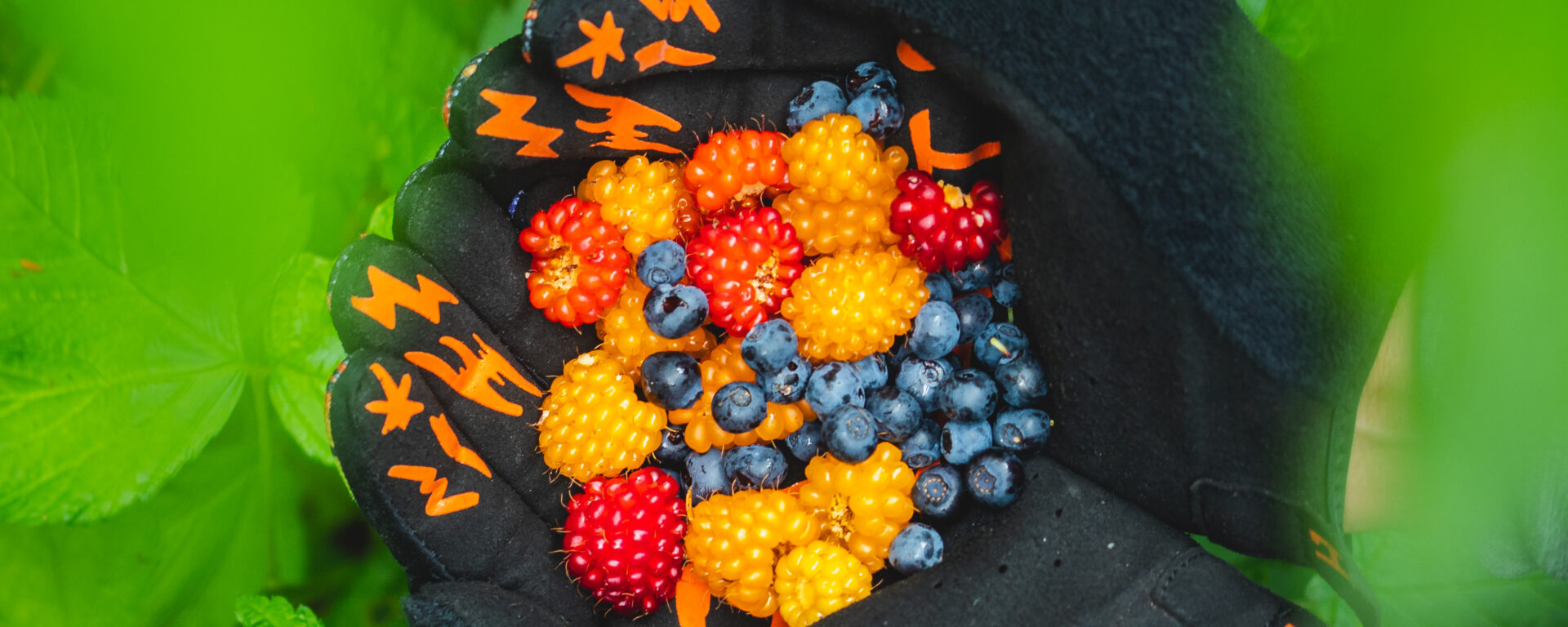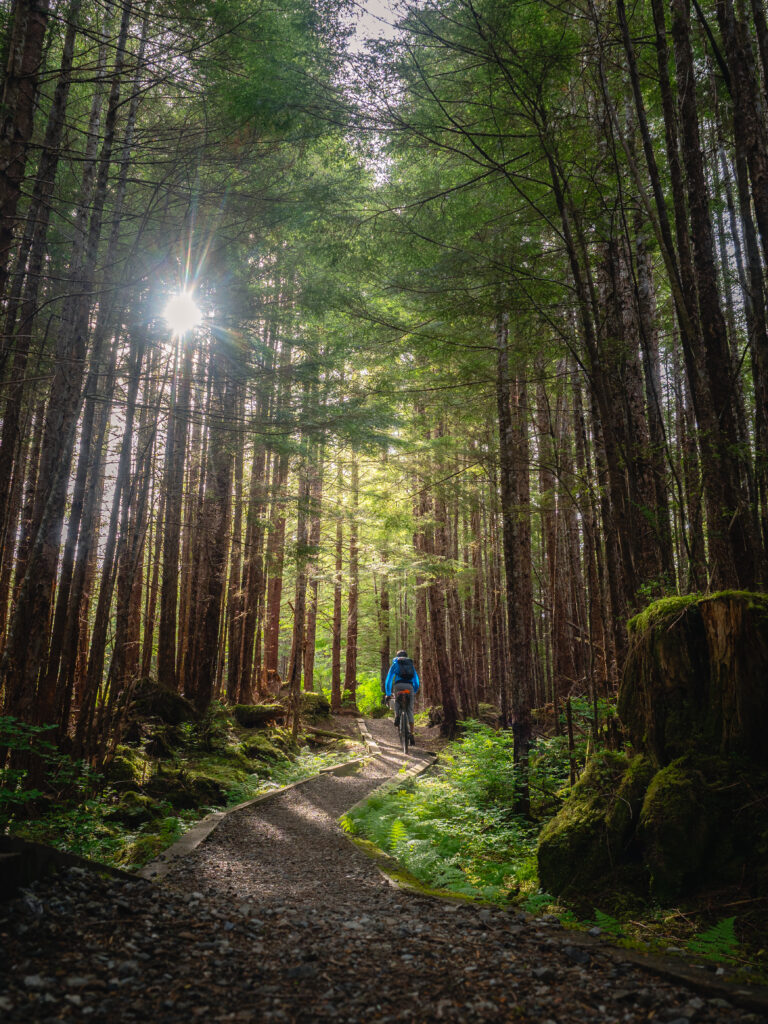
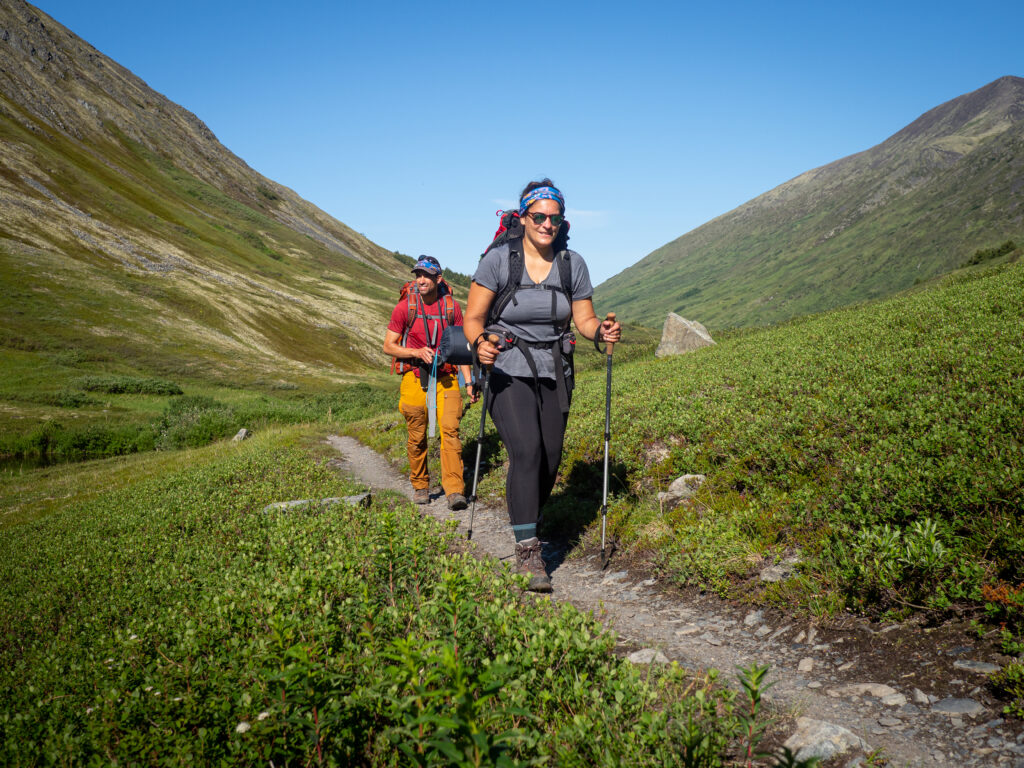
Images and text by Sagar Gondalia (@gondalia) and Sarah Conlin.
I was on a short backpacking trip with my wife and some visiting college friends on Alaska’s Kenai Peninsula. We were connecting Resurrection Pass from Hope, down to Devil’s Pass, and spent 3 days covering the 35 or so miles. I lost count on day one of all the bikers and bikepackers flying by us both up and down the trail and, for the first time in my life, thought to myself why am I walking this trail?!
Over a decade prior I was borrowing a friend’s severely dilapidated bike for my short commute to Ultimate Frisbee practice when the rear brakes cut out on a steep hill. Further complicated by the fact that the front brakes already didn’t work, I awoke in the hospital with a concussion, a partially detached ear lobe, and a striking resemblance to Two Face.
No, I wasn’t wearing a helmet. “It was a short ride, mostly through a college campus,” I had told myself. I was young, dumb, and remain thankful to have gotten away with relatively few longterm consequences for such a stupid decision. Possibly the largest of the consequences was that I had decided I wasn’t a bike-person and entirely stopped riding bikes.
Fast forward a dozen-plus years and an extremely unfortunate case of shingles, and my poor (now much older) body is struggling to rock climb, or even go on easy hikes. A few of my friends were biking around town, and on a whim I woke up, checked Craigslist, and bought a 1970s Japanese Takara for $50. I went on a ride, realized I didn’t understand what down-tube shifters were, or how they worked, and remembered how much fun bikes were.
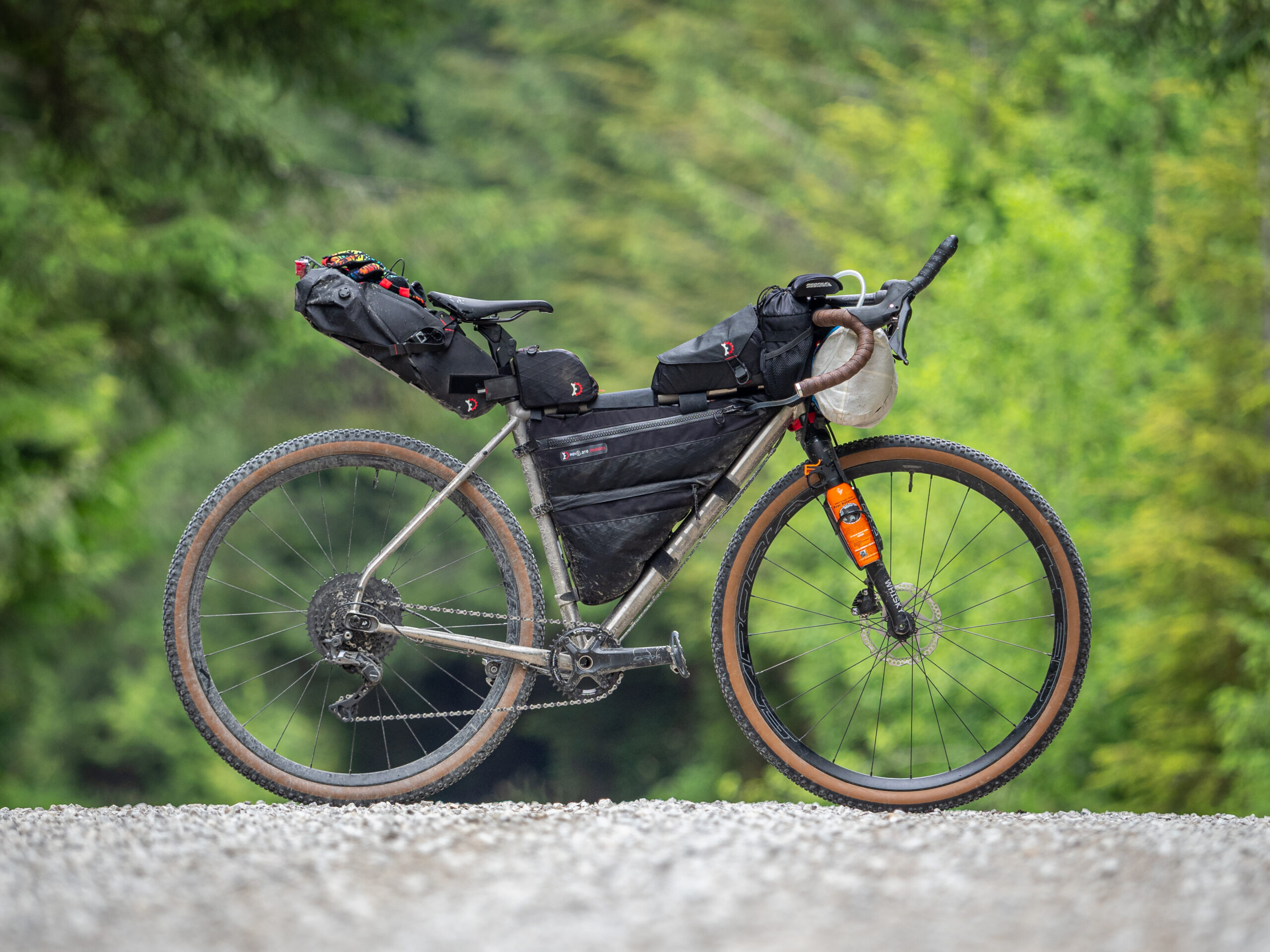
I swapped my Takara for a $200 10-year old Specialized Allez and tried to pretend it was a gravel bike. With a maximum tire clearance of 27c, I quickly found out it was sorely lacking. Some friends were riding Otso bikes, and one was kind enough to lend me hers. I was in love, and am now the proud owner of a Warakin Ti. I just wrapped up my 4th bikepacking trip since I’ve gotten my bike, and it was every bit as magical as I’d hoped.
Day 1: Hollis Ferry Terminal to Harris River Campground
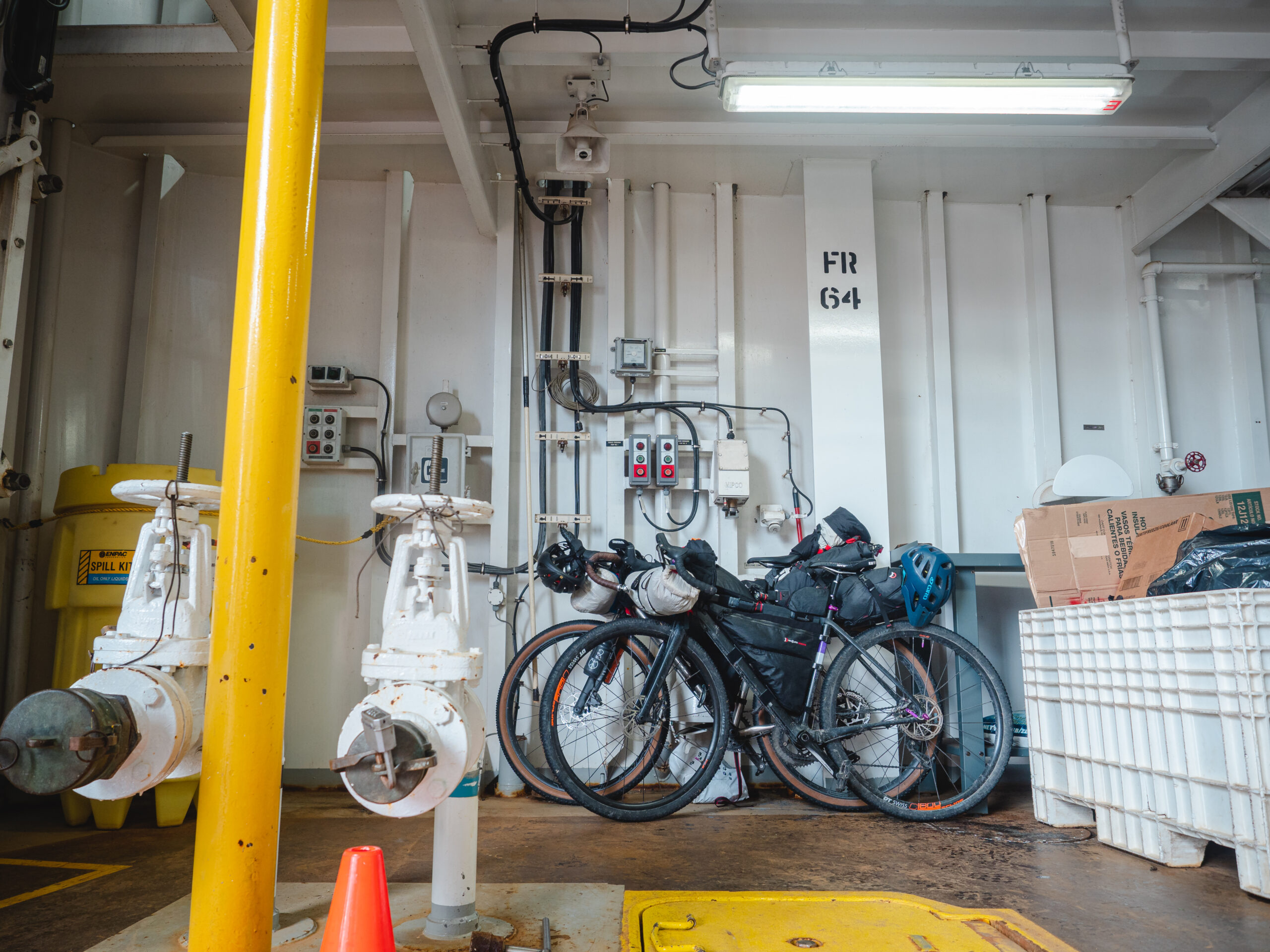
Prince of Wales Island is the third largest island in the US (after the Big Island of Hawaii, and Kodiak Island, also here in Alaska). Like most of southeast Alaska, it is not accessible by traditional means. To get there, my wife and I flew from Anchorage to Ketchikan (For Alaska Airlines credit card holders or Alaskan Residents, bikes and other sports equipment count as normal checked bags on Alaska Airlines, and for us Alaskan residents, we get two free checked bags every flight!), and then after reassembling the bikes, we loaded up and took a 3-hour ferry over to the island. We arrived at 6:30pm, with a throng of tourists headed to their fishing lodges, pedaled west out of the ferry terminal in Hollis, and immediately felt like we were on the island by ourselves.
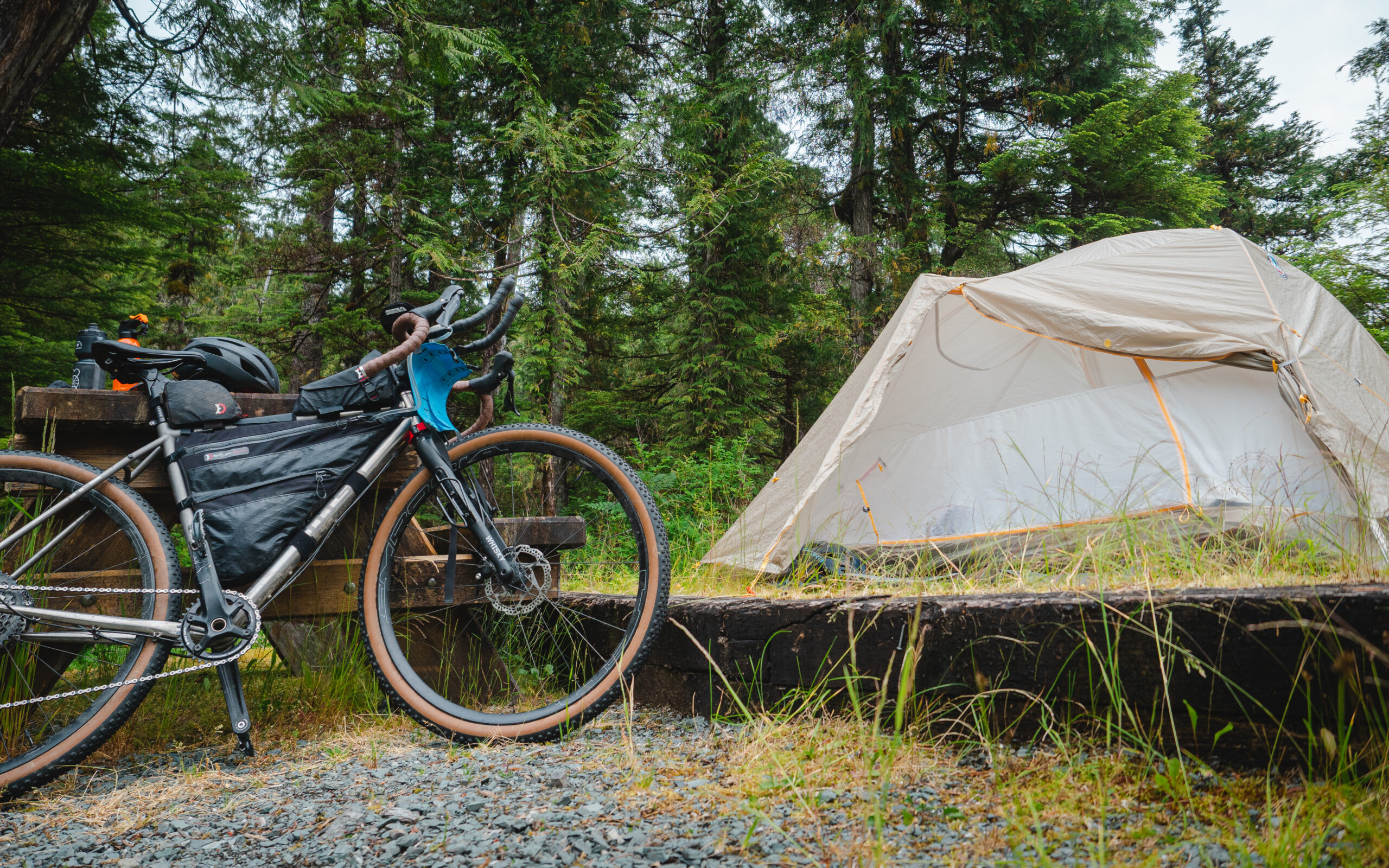
That first day only entailed about 45 minutes of riding before we found a gorgeous campsite at the Harris River campground. Again: there were literally zero other people there. A quick dinner, a nip of whisky, and we loaded all of our smellies into our Ursack, and tied it to a large tree 100 yards from camp. Although there are no brown bears on Prince of Wales, it is home to a large (although rumored to be timid) black bear population. To mitigate our bear encounters, we opted to keep 100% of our smellies (food, toiletries, whisky) in a smell-locked kevlar reinforced Ursack, which I carried on my back during the day within a backpack. During the day, snacks went into one of our feedbags, and at the end of each day, that bag came off the bike and also went into the Ursack. Although I’m not a fan of riding with a backpack, this seemed to be the best solution for us while bikepacking in bear country.
Spoiler alert: it worked. We had zero bear encounters on our trip, and although it’s always wonderful to see them in the wild, I’m thankful to have avoided them entirely.
Day 2: Harris River CG to Sandy Beach Picnic Area
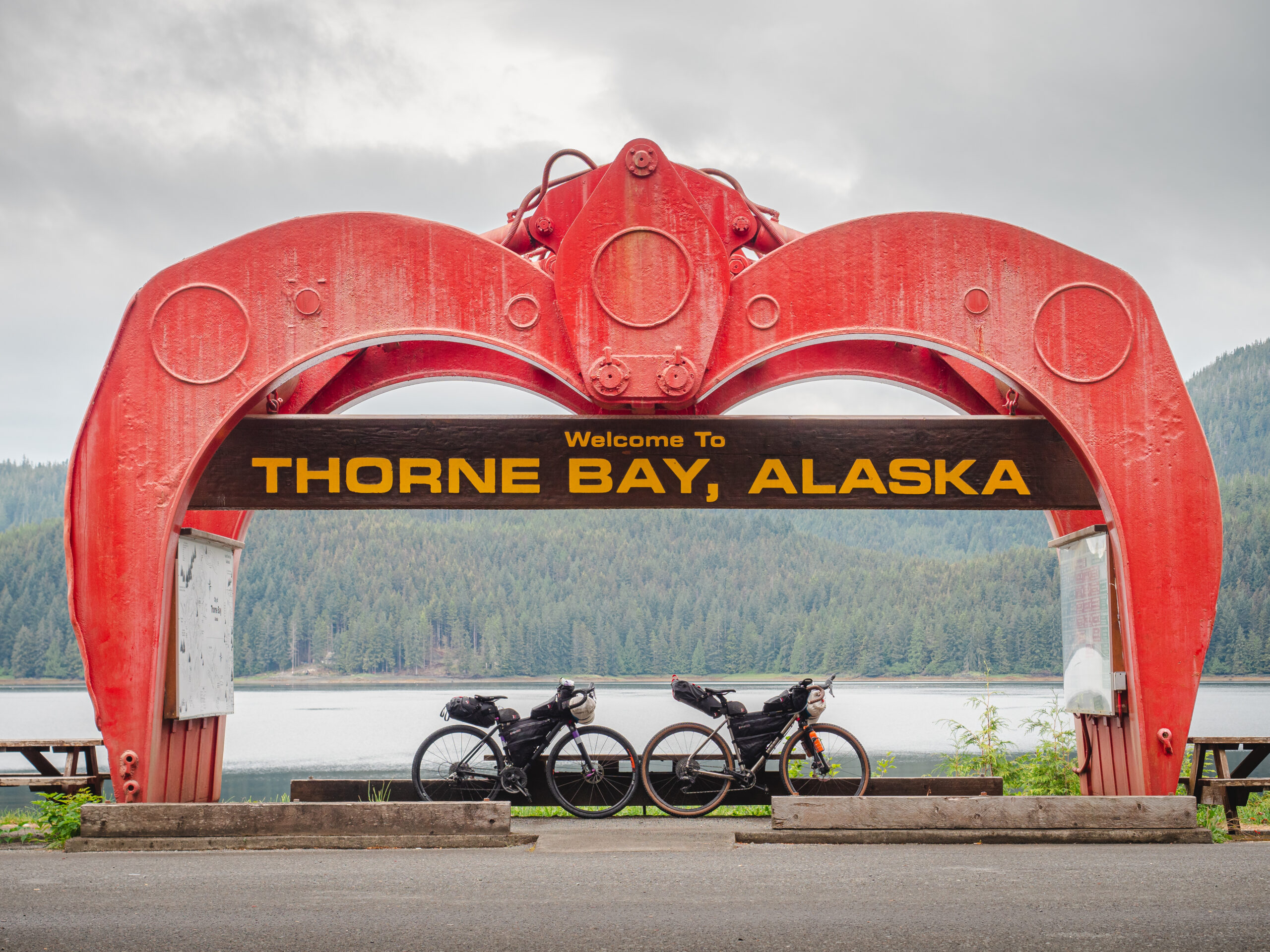
My wife is a professional planner for the National Park Service. I prefer to wing it. We compromised on this trip and although we had some ideas about where to go and what to do, we mostly left it open-ended. There is a large mix of paved and gravel roads around the island. The pavement connects the small communities on the island (Craig, the largest town, is home to only 1,500 residents). The gravel and dirt road facilitate the logging and mining industries that have been active on the island for around 100 years. We found that many of these roads are delightful places to explore and camp, but only a few are through roads, capable of connecting you from one spot to another.
Day 2 was our biggest day, and we pedaled an hour from our campsite to the small community of Klawock (pronounced klah-WOCK). The Black Bear Store had an incredible selection of snacks and sundries (including a fridge full of fresh oysters!). Oysters on a bike trip at 9am felt a little bold, but we left with some fancy new-to-us energy drinks, and a slew of sweet and salty snacks. From here we followed the road north and east (crossing the island for the second of what would become four total transverses) where we found ourselves in Thorne Bay. Along the way we found a few U.S. Forest Service public use cabins, some of which you could only access by rowboat (which was conveniently waiting for its users at a roadside dock). The idea of pedaling to a boat, to then paddle your bikes to a cabin sounds delightful, and if anyone decides to do this, I would love to hear about it!
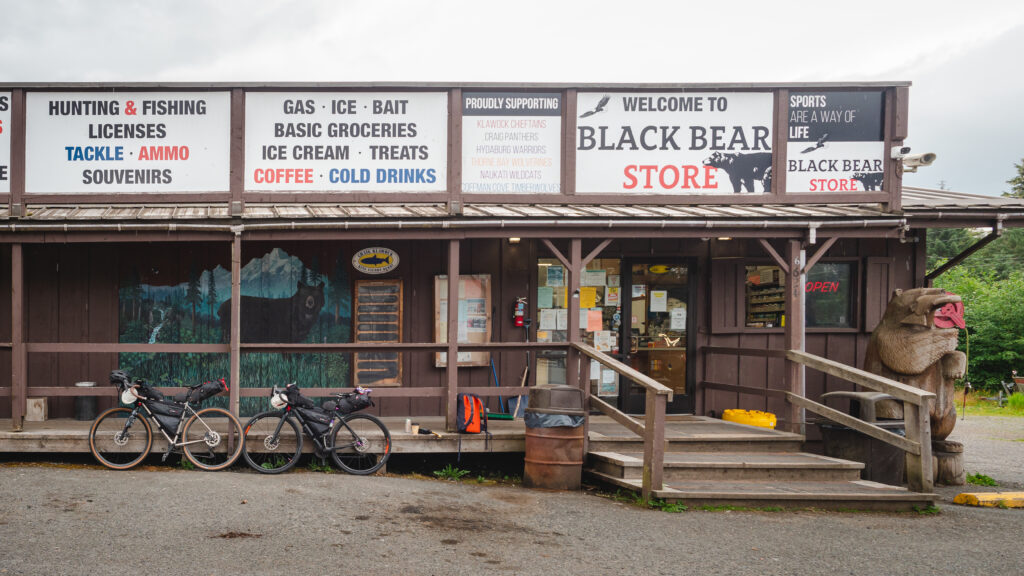
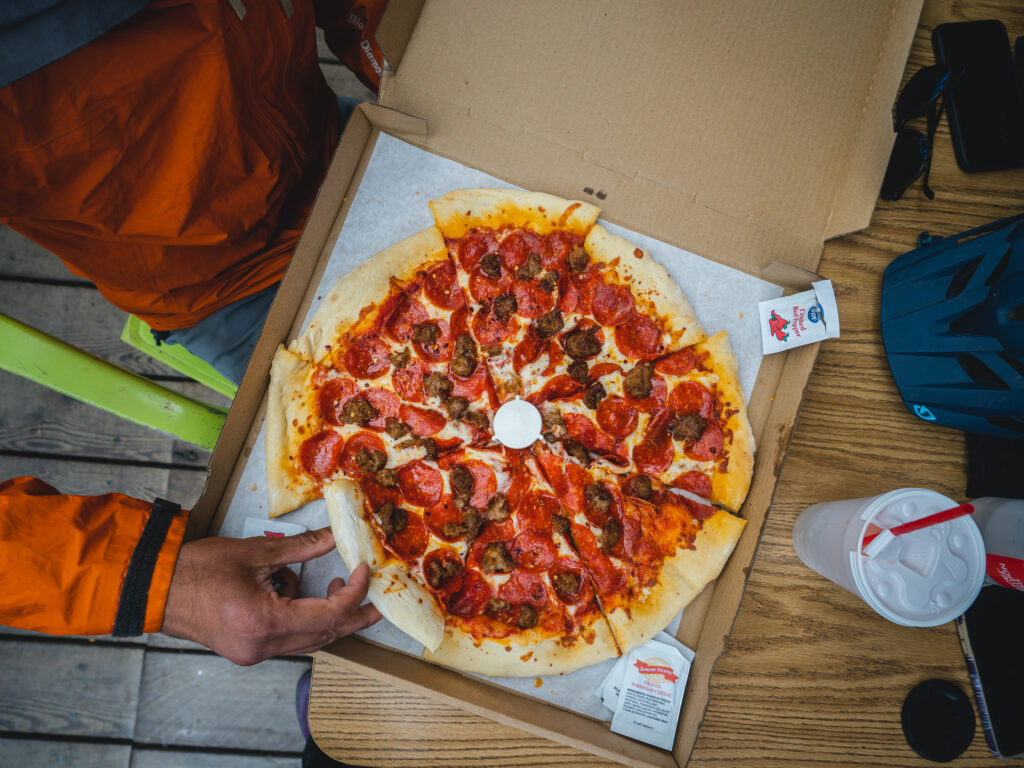
Thorne Bay had a pizza / burger / milkshake place which we did not skip. From here we biked up into the hills north, finally finding ourselves on gravel. After a quick 500-foot climb, we were descending again, but now along the coastline on Sandy Beach Road. The views east of the ocean and the myriad of islands were incredible, and after ~55 miles of riding, we decided to call it quits at the breathtaking Sandy Beach Picnic Area. We were surprised to find two beautiful designated walk-in camping spots overlooking the beach. Once again, we had the place to ourselves.
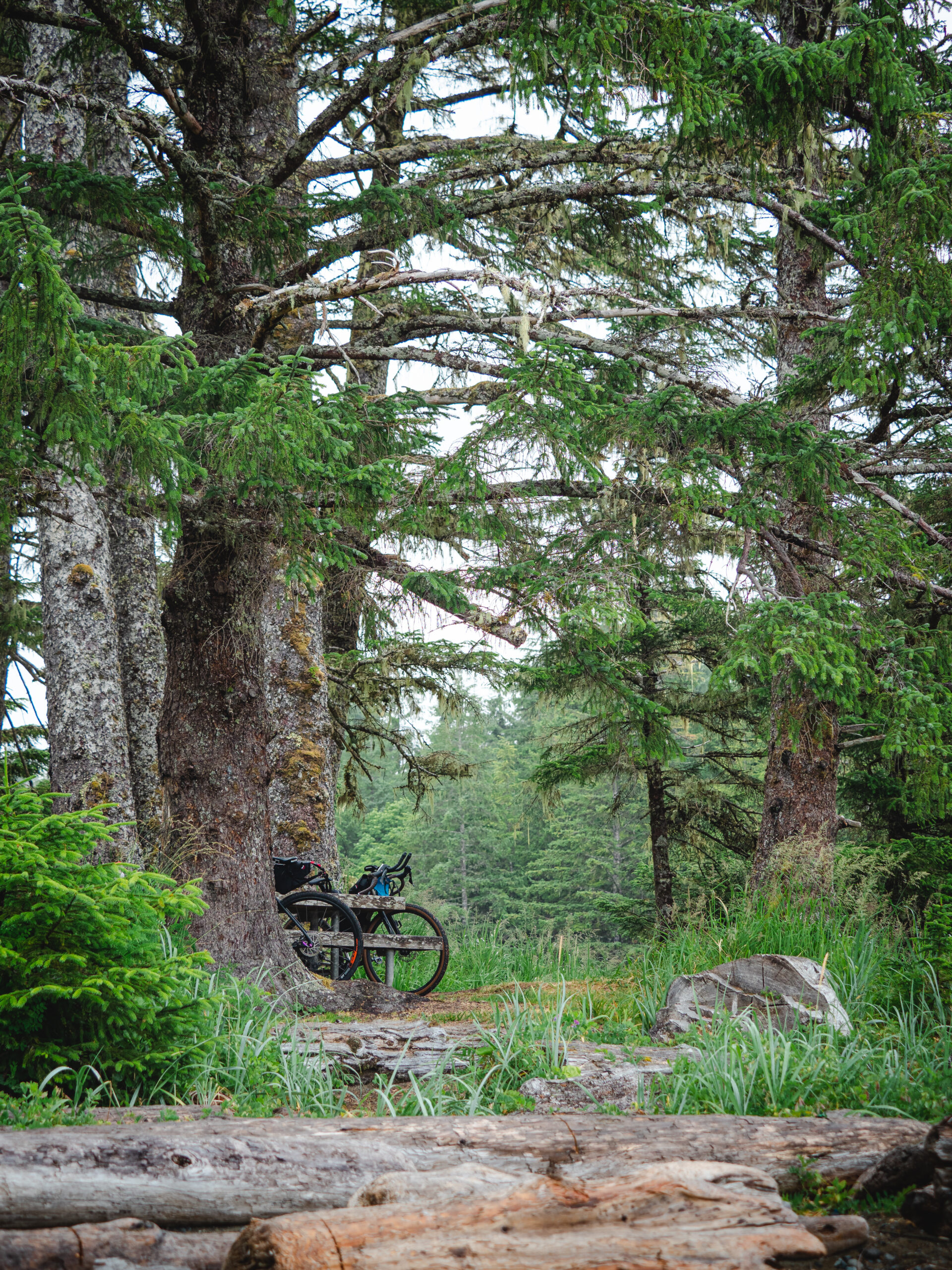
Day 3: Sandy Beach Picnic Area to Coffman Cove
With around 100 inches of rain each year, Prince of Wales Island is notoriously rainy. We received what I like to think is fantastic weather. Although it did rain on us every day, it was usually light, and intermittent, with plenty of time for us to swap into appropriate gear, and then dry out again when the rain ended. Day 3 was an exception. We rode along the breathtaking Sandy Beach Road until it left the coast and turned inland on a logging road. Combined with the rain, the incredibly steep gravel climbing to 1,000 feet was relentless and at times hit 18-19% grade. I had a blast, but it was definitely the closest to Type 2 fun we had on the trip. Thankfully because of its severity, the climbing didn’t last long, and the descent was totally worth the investment. We cruised down the other side of the pass and into the sleepy community of Coffman Cove.
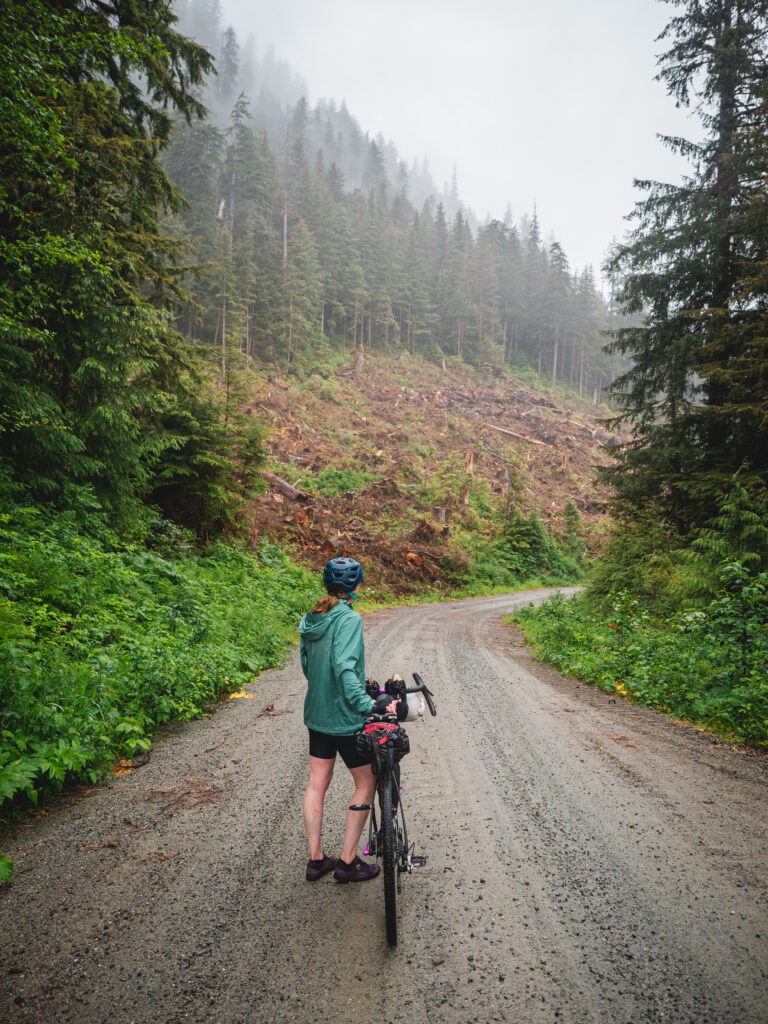
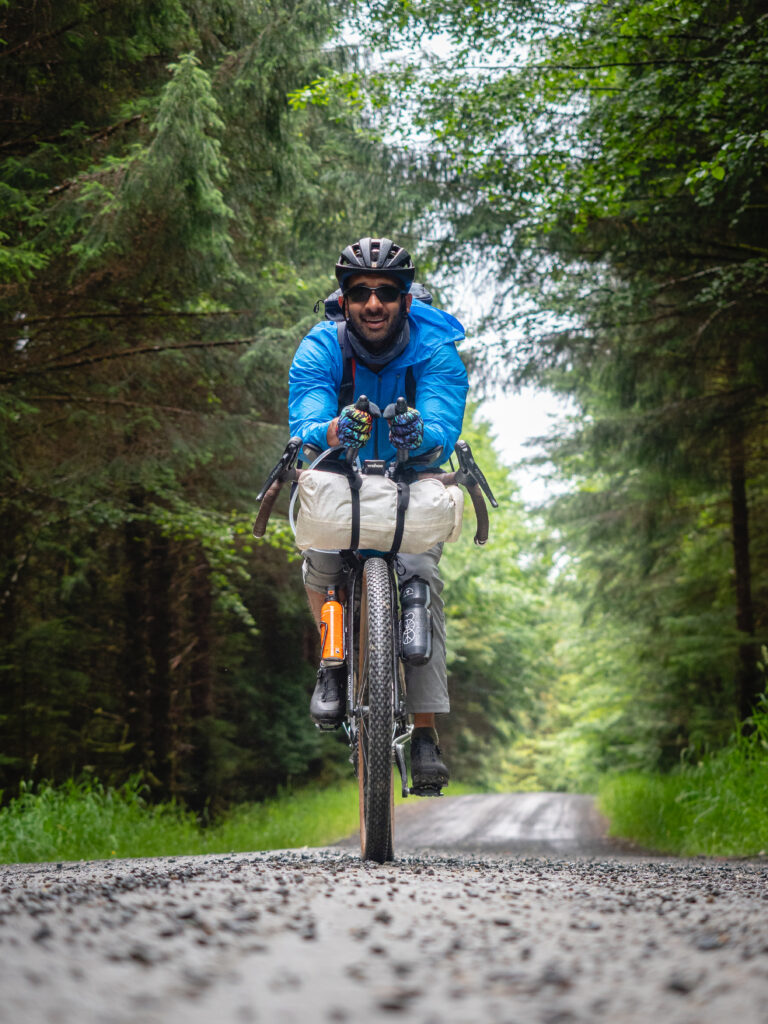
Here we found another market, and wolfed down warm hotdogs, burritos, and filled back up on snacks. Another few miles back on pavement headed west and we found a series of logging roads that lead us to our most tranquil ad-hoc campsite of the trip. Again: there was no-one anywhere near us.
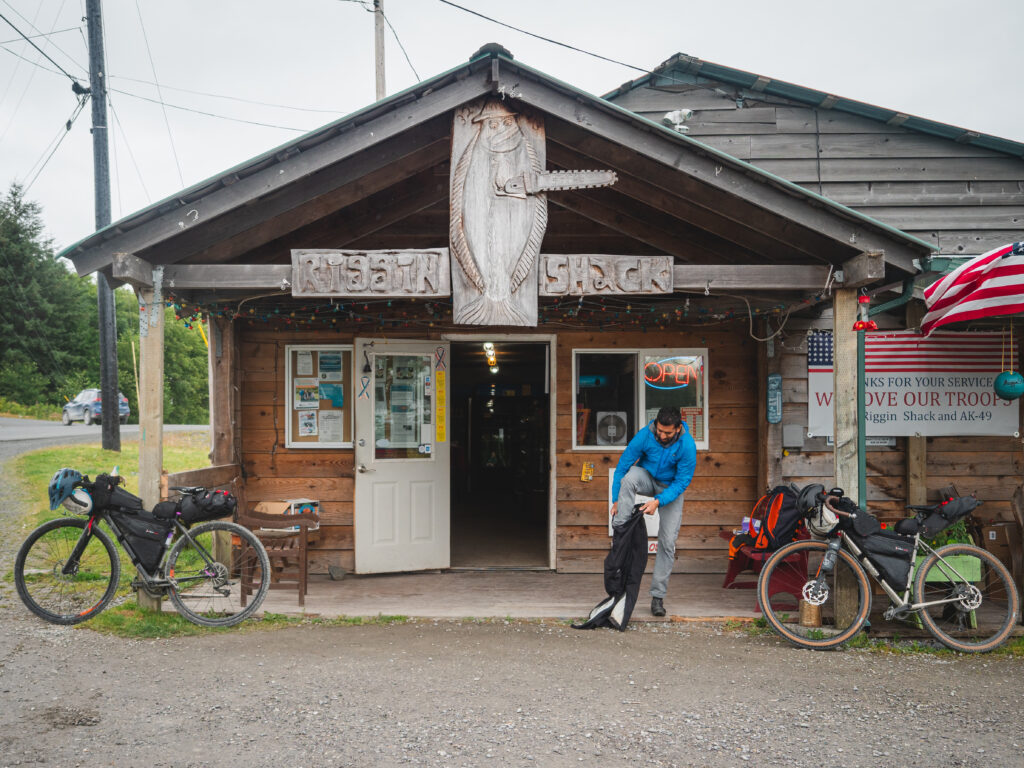
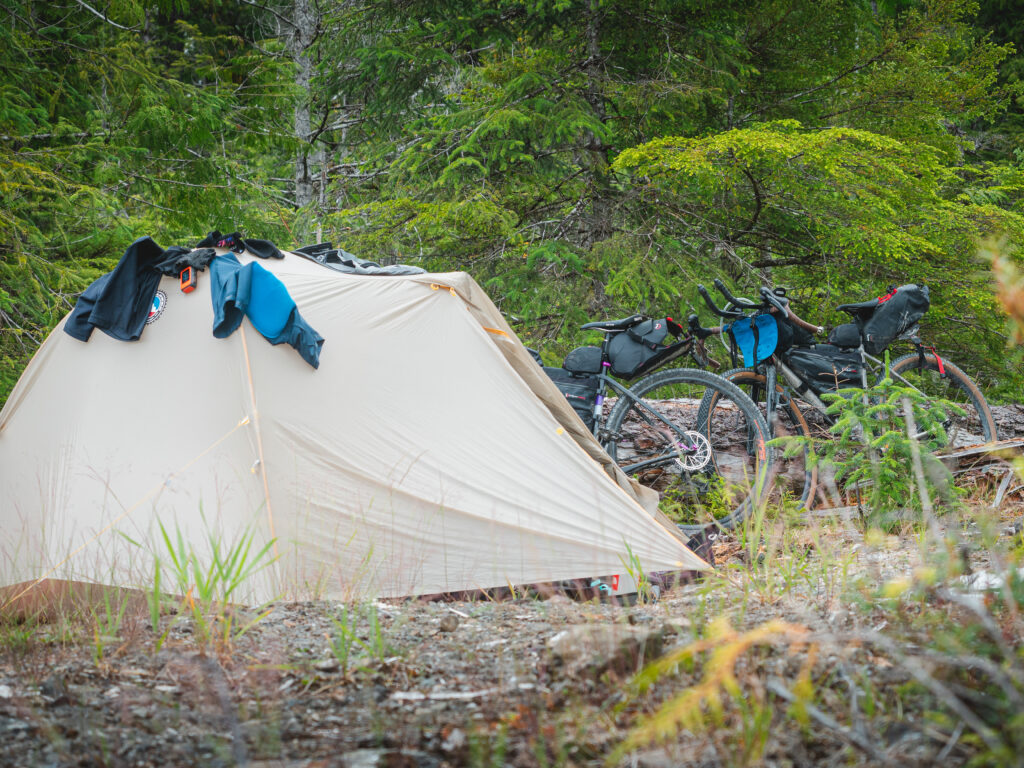
Day 4: Coffman Cove to Staney Creek Cabin
Heading west again, we had a decision to make. There is a maze of gravel roads in the (even more) remote northern part of the island, but wouldn’t be able to make a loop out of them if we took that path. We decided to keep the pace slow, and instead opted to forego the northern part of the island (for anyone who does end up there, I would LOVE to hear about it. The caves of El Capitan sound super interesting!).
Instead, Sarah recalls that a public use cabin on the west side of the island was still not reserved when we left on day one. Via InReach, we had a friend confirm its availability and reserve the cabin for us that evening. Off we biked to Staney Creek Cabin: easily one of the highlights of our trip. We were able to leave pavement again and travel along beautiful gravel roads to the cabin. The last half-mile was an extremely well maintained steep trail down to the shore, and the opportunities for salmon berry picking seemed endless.
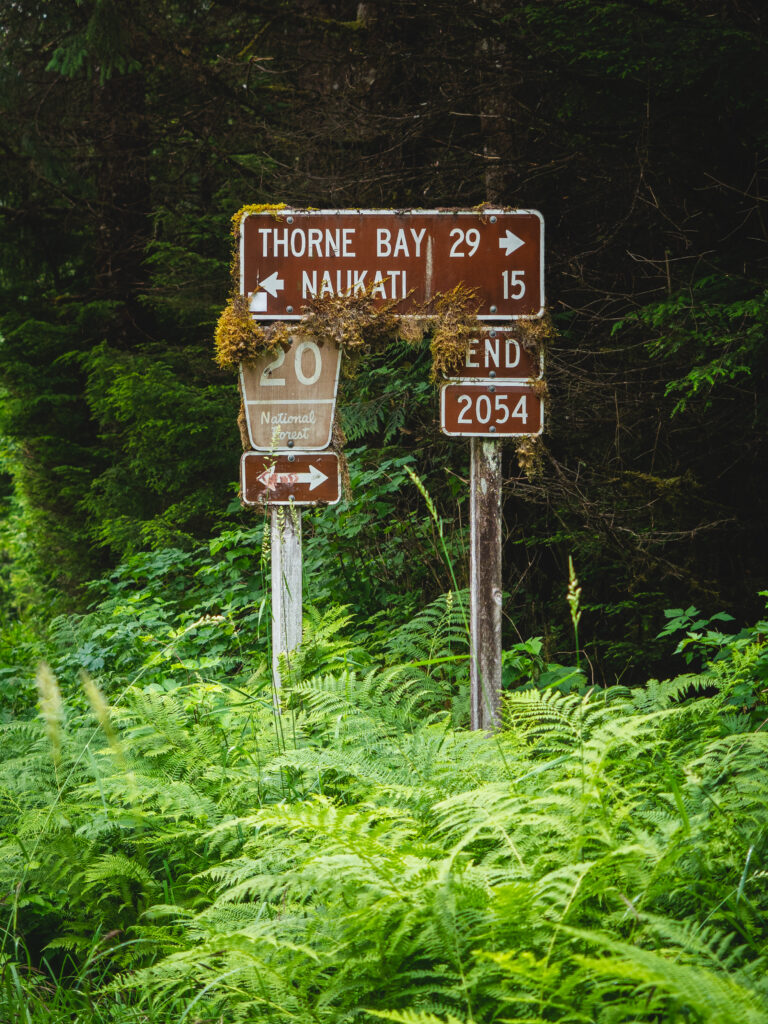
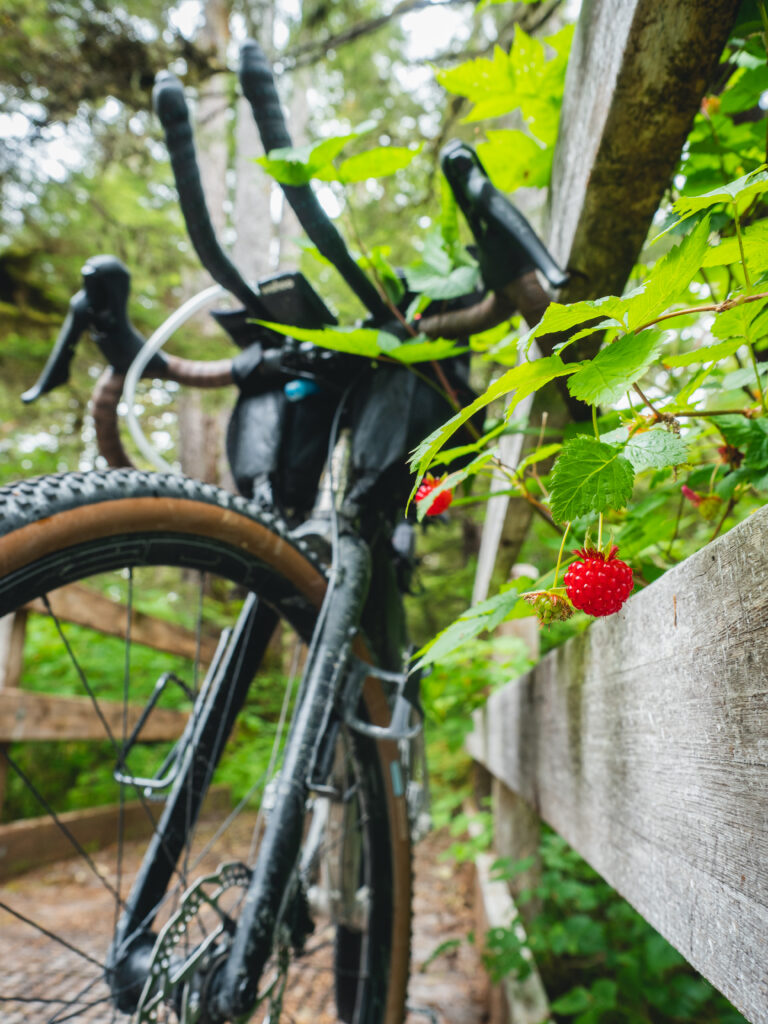
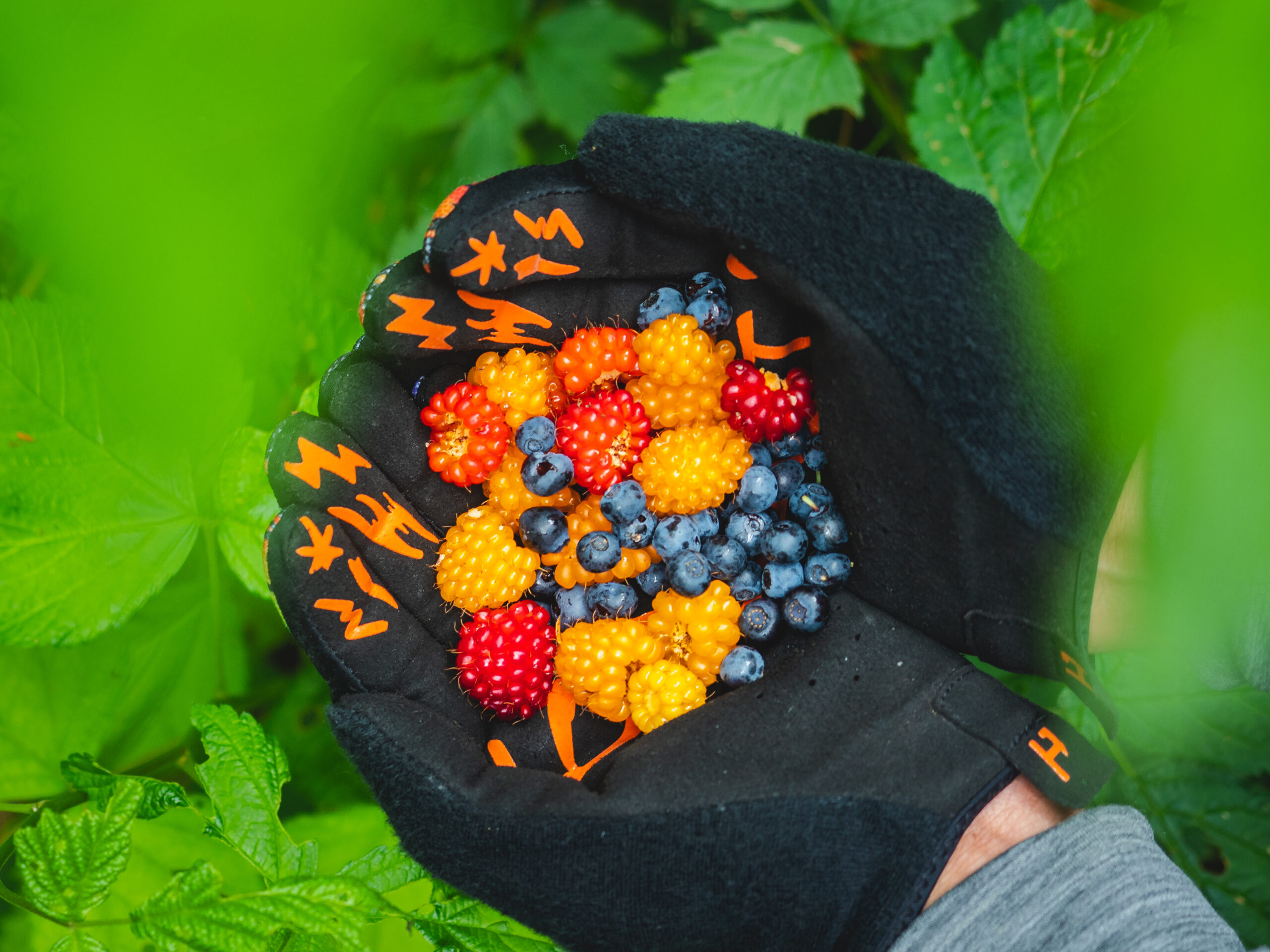
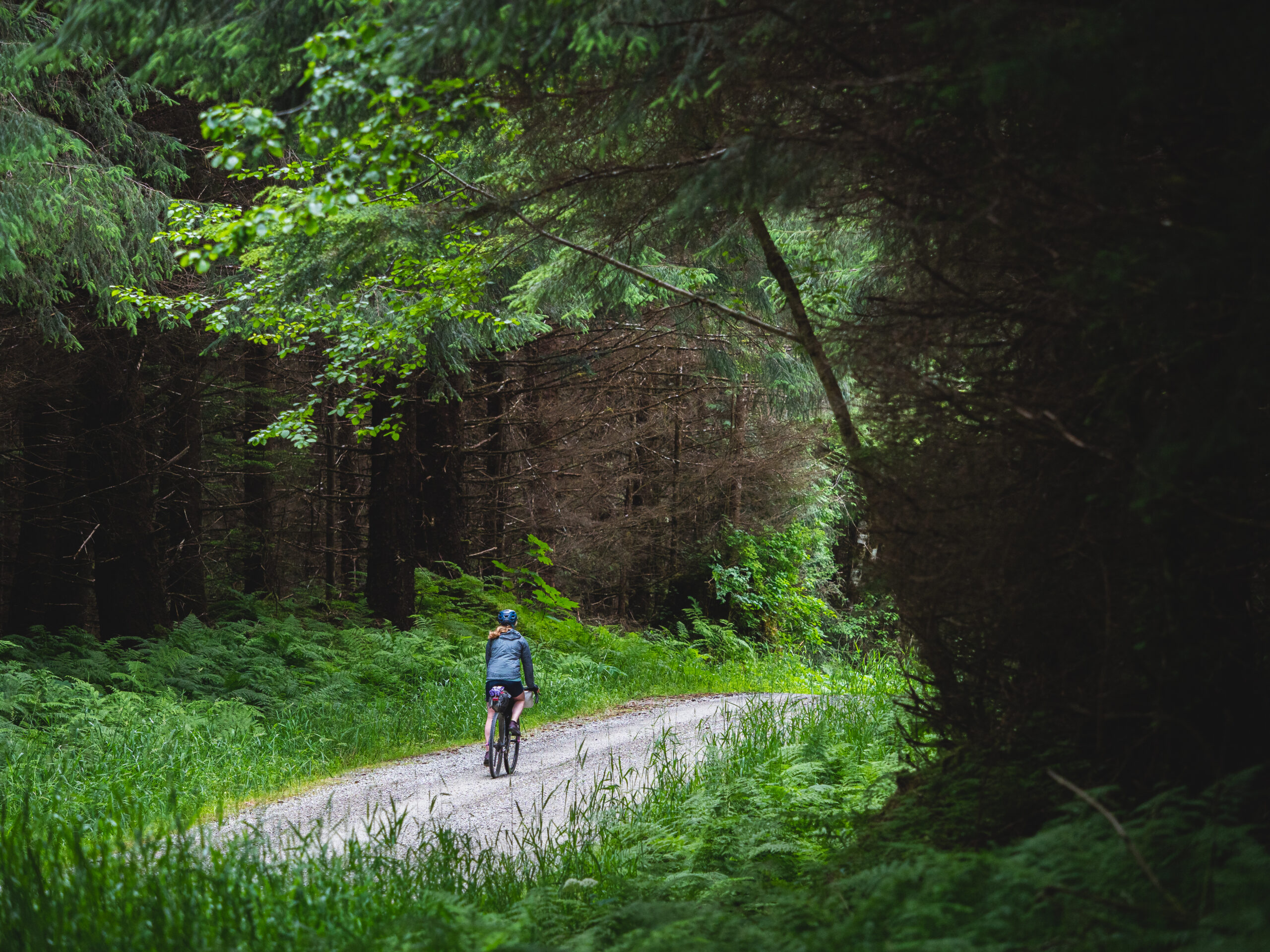
As we arrived the tide was coming in, and we watched harbor seals swimming up with the water, looking for their dinner. Bald eagles were nesting all around us, and the cabin was designed with a large section of plastic roof to function as a skylight, so the light inside was beautiful and welcoming.
We had a short day, made up some poetry to write in the guest book, and knocked out a large chunk of reading. Although it was only 27 miles, the riding had been thoroughly enjoyable, and the payoff incredibly sweet.
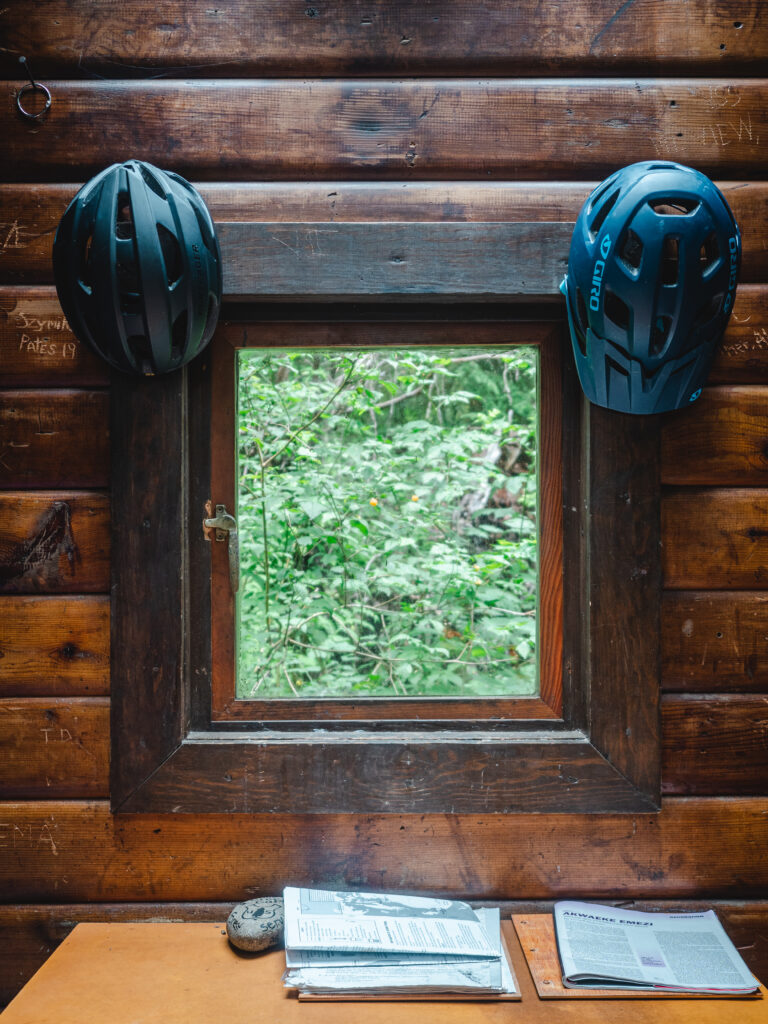
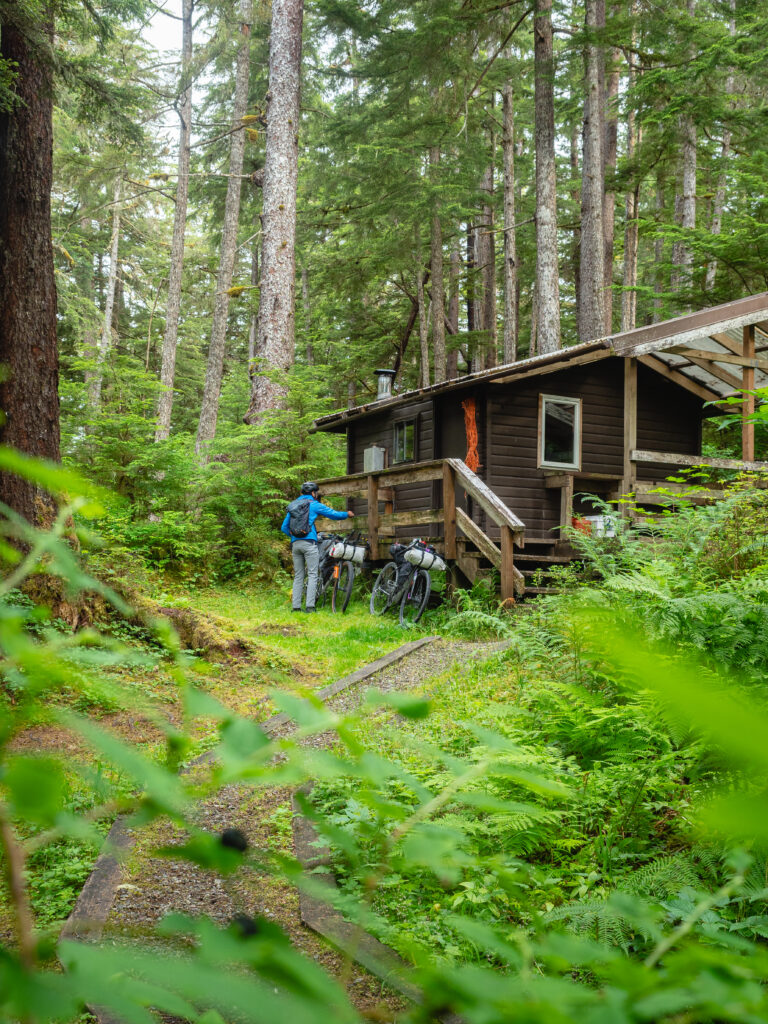
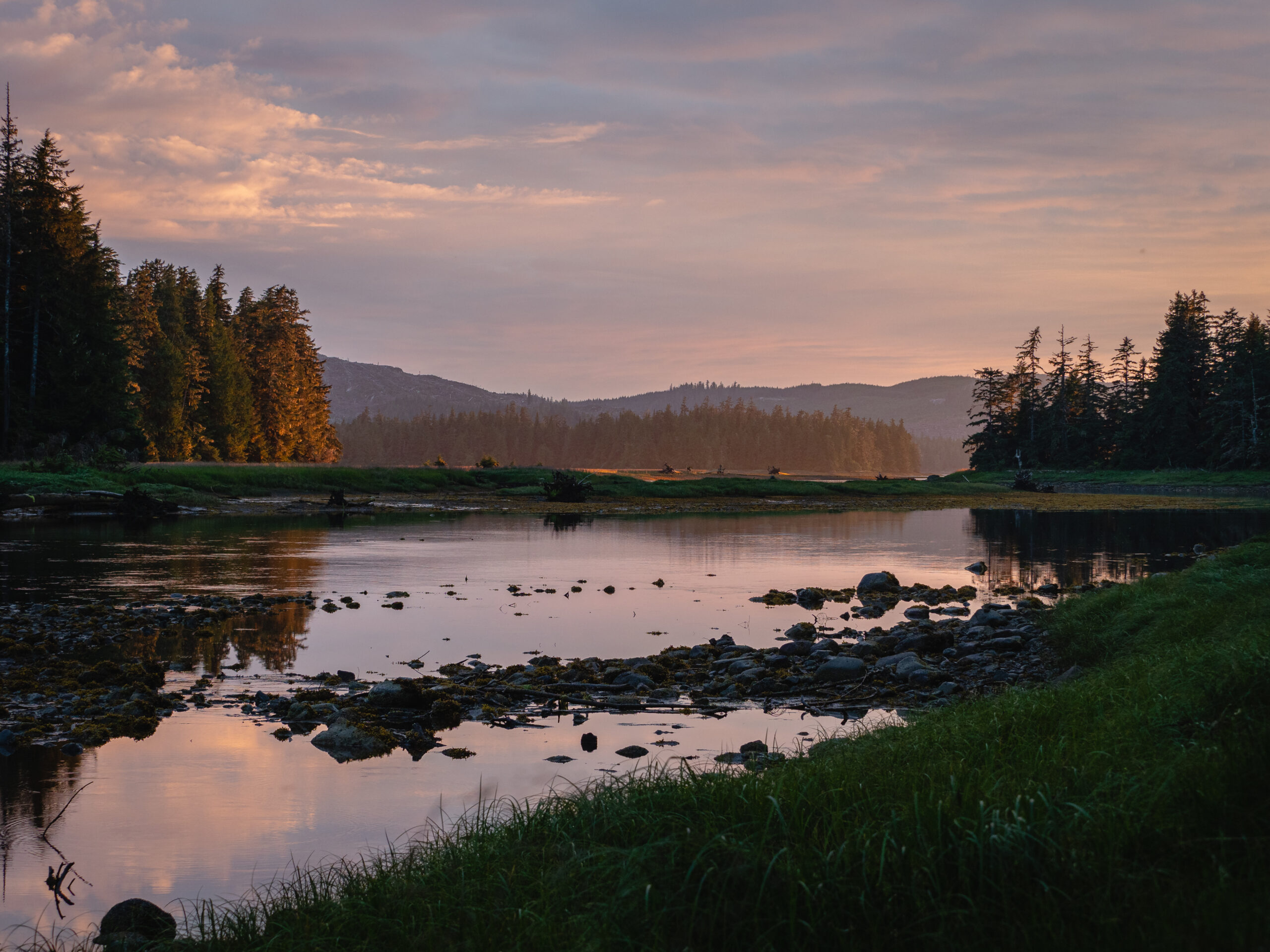
Day 5: Staney Creek Cabin to Craig
We opted to forego as much pavement as we could and took a series of gravel roads south and west, looking to climb most of the way up the pass en-route to Klawock and into Craig. The climbing was consistent, but the grades moderate, and the road in wonderful shape.
This was another fantastic stretch for us, and we were sad to find ourselves back on pavement (slightly alleviated by the fact that we were almost done climbing and had a fantastic descent ahead of us). From here we backtracked the road we’d pedaled from Klawock, and stopped again at the Black Bear Store for more snacks.
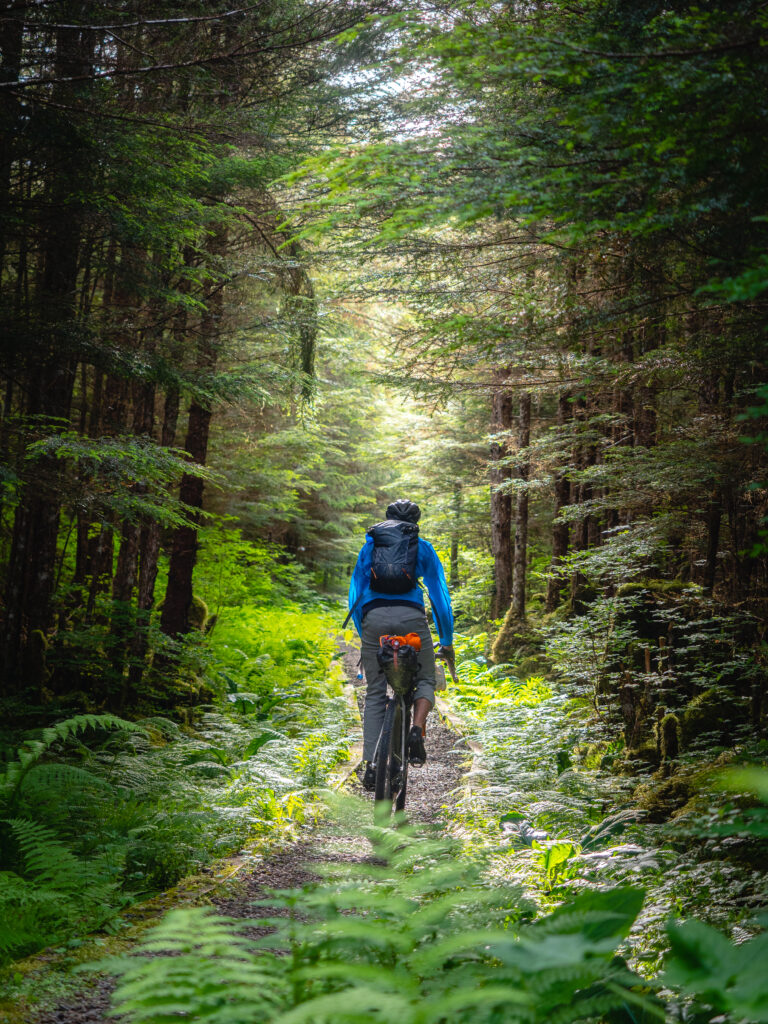
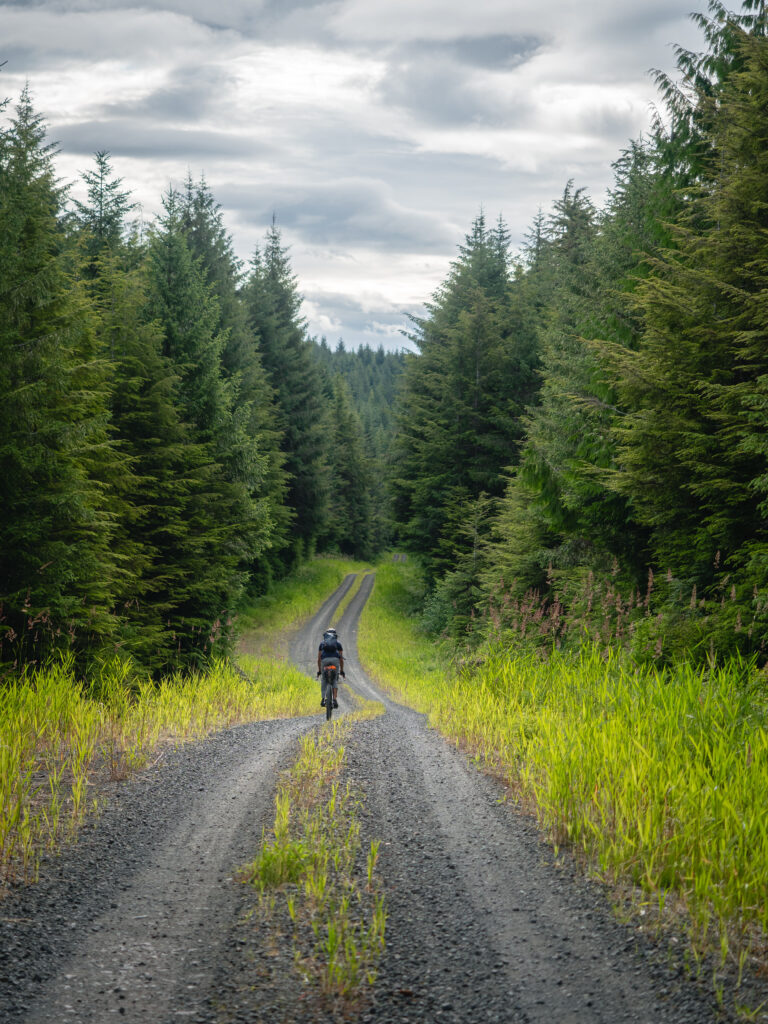
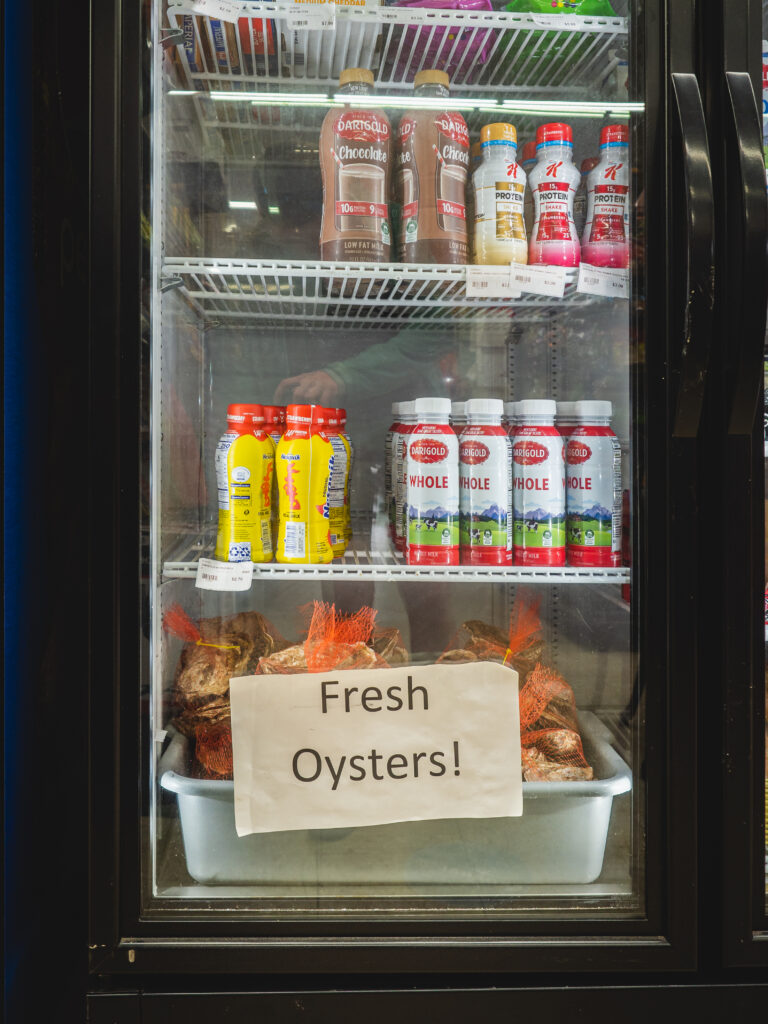
The 7 miles south into Craig along the coast were quick, and easy, but also by far the most trafficked by cars. We’re not quite sure where all of these vehicles were coming from or going to, but we saw more cars on this stretch of road than anywhere else on the island (on that note, people across the island were extremely polite, and at almost every opportunity would give us an extremely wide berth on the already comfortably large shoulders).
Rather than bike back out of Craig to camp, we opted to stay at Ruth Anne’s Hotel. Reasonably priced and welcoming of our bikes, it was a great and comfy spot to recharge after another day with a lot of intermittent rain. We had a delicious meal at the Dockside Cafe, and drank a beer at each of the nearby watering holes: The Hill Bar and The Craig Inn Bar. Both were great, but couldn’t be more diametrically opposed in atmosphere.
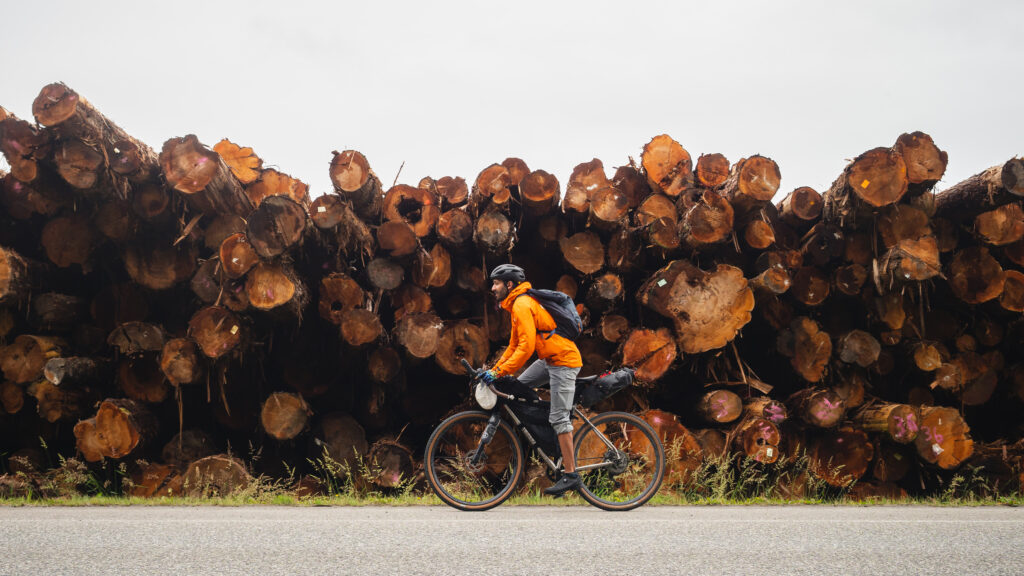
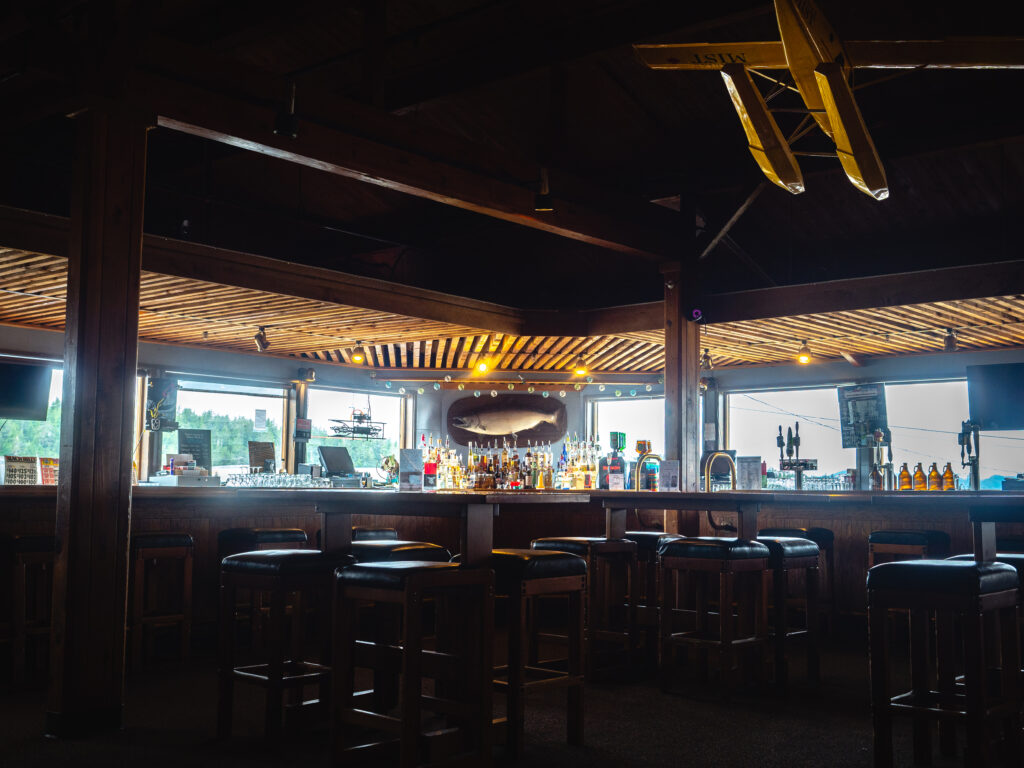
Day 6: Craig to Lucky Nell Mine Road
Day 6 promised the least exciting riding for us, as we were simply heading back across the island to catch the ferry the following morning. We’d already ridden all of this, and it was all pavement. We had a lazy morning in the comfort of our bed, and headed out around noon.
An extended stop in Klawock to check out the really cool Klawock Totem Park, our final pass through the Black Bear Store, and east we pedaled.
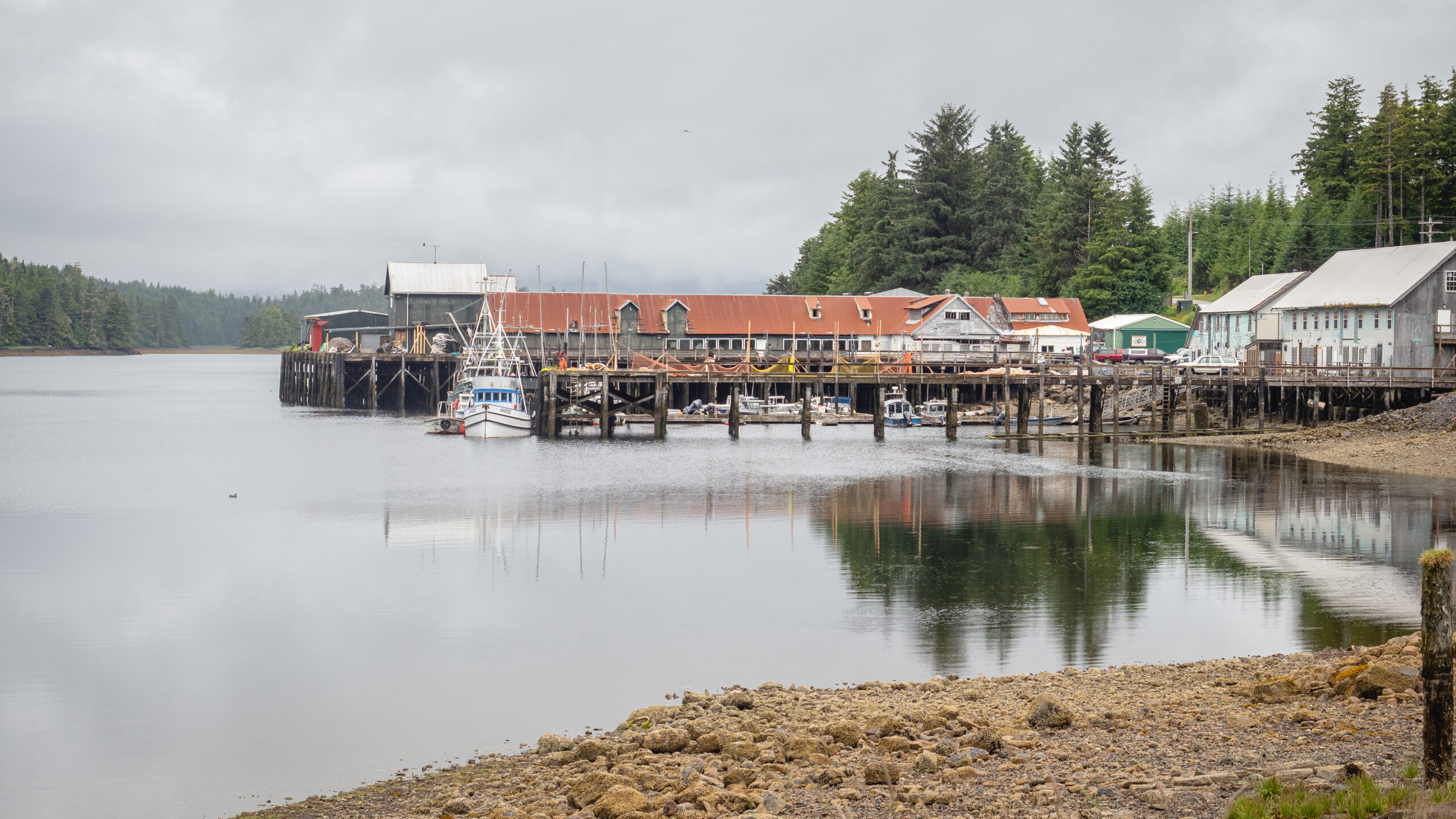
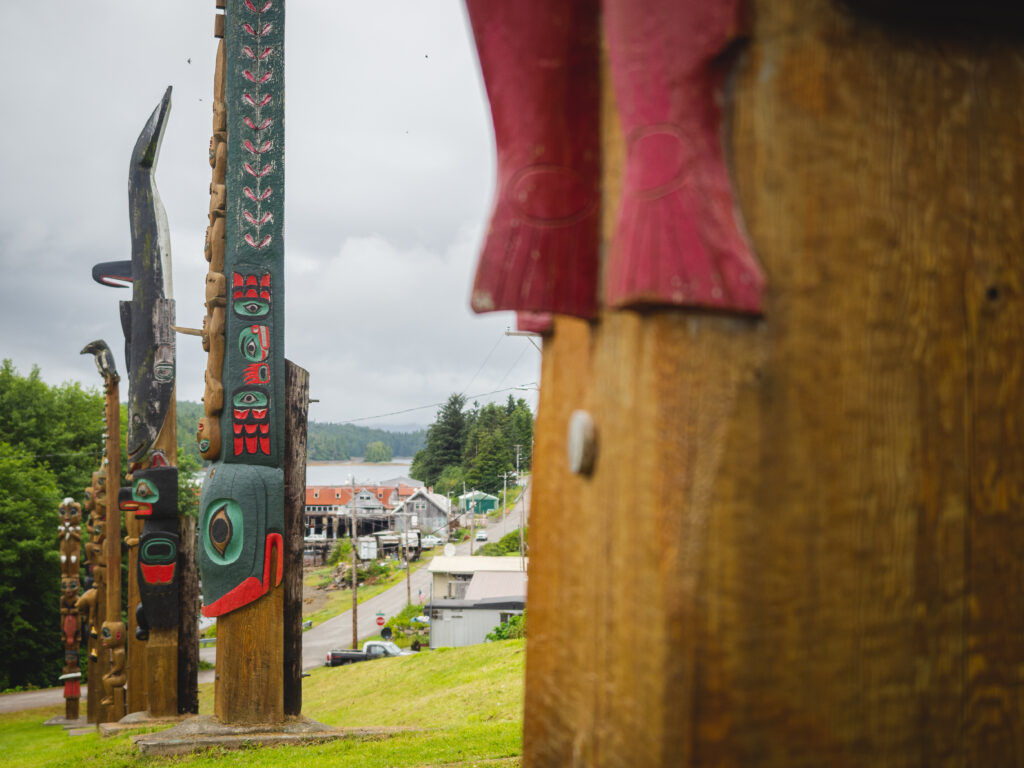
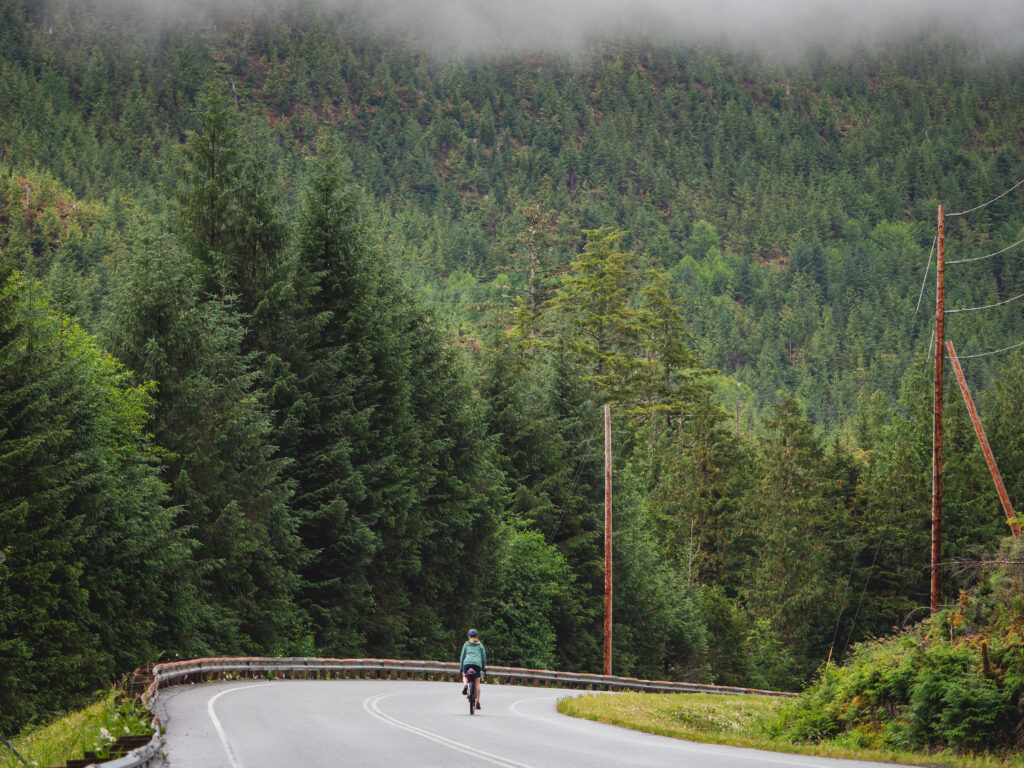
We hadn’t checked out Hollis proper on our way out, and while it’s extremely small, it also boasts an adorable public library (with intermittent opening hours). Staff and community members were welcoming and excited to chat. We used their wifi to check in with family, and sat inside reading for a few hours while it rained.
At the suggestion of a community member, we biked back to the west a few miles to the Lucky Nell Mine Road, a now abandoned mining road, and took the rocky path for about a mile before finding yet another entirely secluded, and flabbergastingly beautiful camping spot.
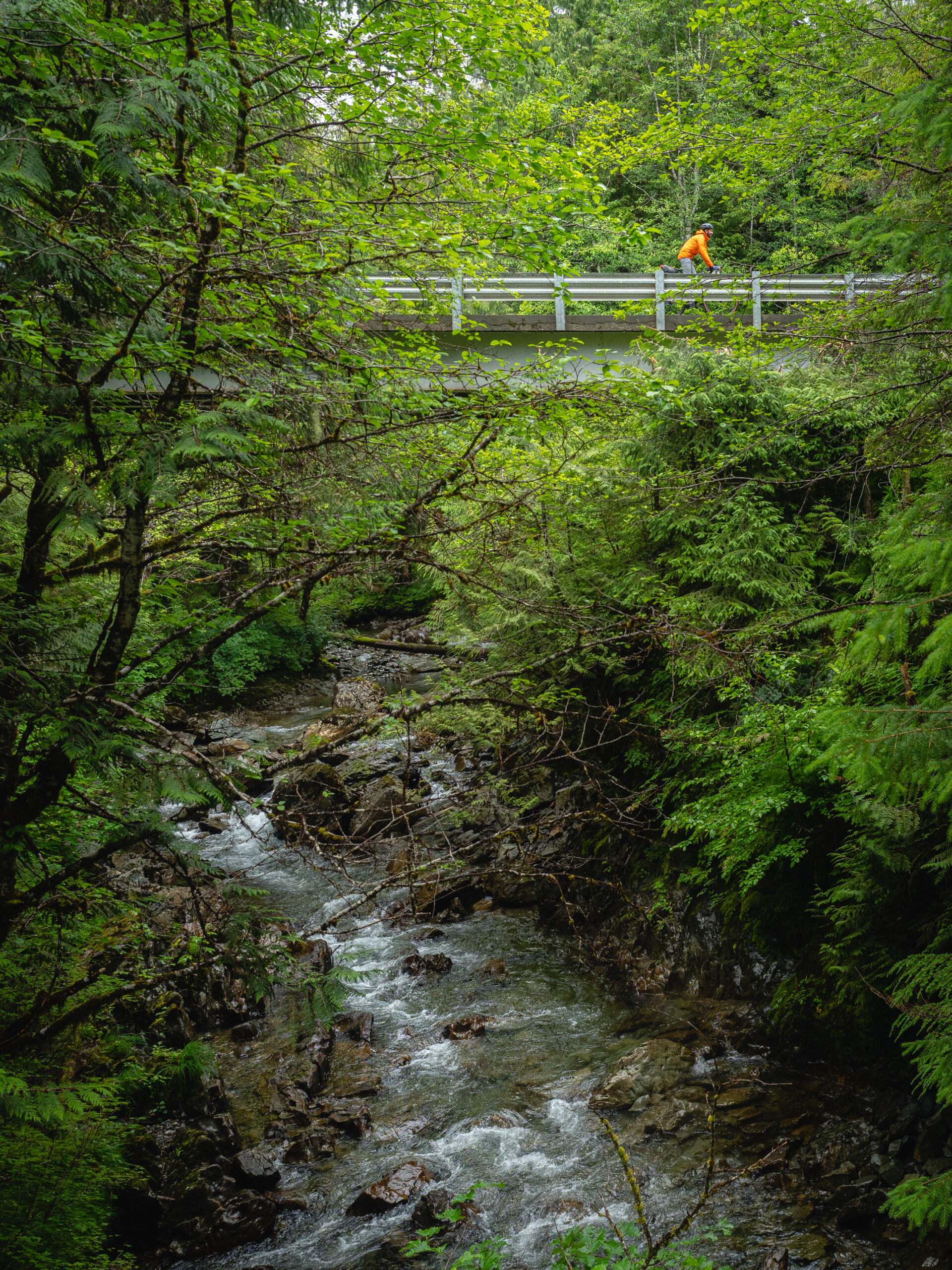
Day 7: Lucky Nell Mine Camp to Hollis Ferry Terminal
Our final day was an extremely short 3 mile ride into Hollis to board the ferry at 7 AM. A few hours later we were back in Ketchikan, and on the hunt for burgers and beer.
All in all I couldn’t recommend bikepacking on Prince of Wales enough. Our trip was just over 200 miles, and consisted of approximately 70% pavement/30% gravel. For an ambitious cyclist, incorporating the northern part of the island would be an easy addition, and likely provide a lot more off-pavement riding. Additionally, there are enough resources around the island that those not wanting to camp could easily book cabins and/or B&Bs or hotels for each night. Those wanting a quiet experience full of solitude could easily find that as well. All the while, the landscape is epic, the people friendly, and the flora and fauna incredibly diverse, abundant, and resplendent.
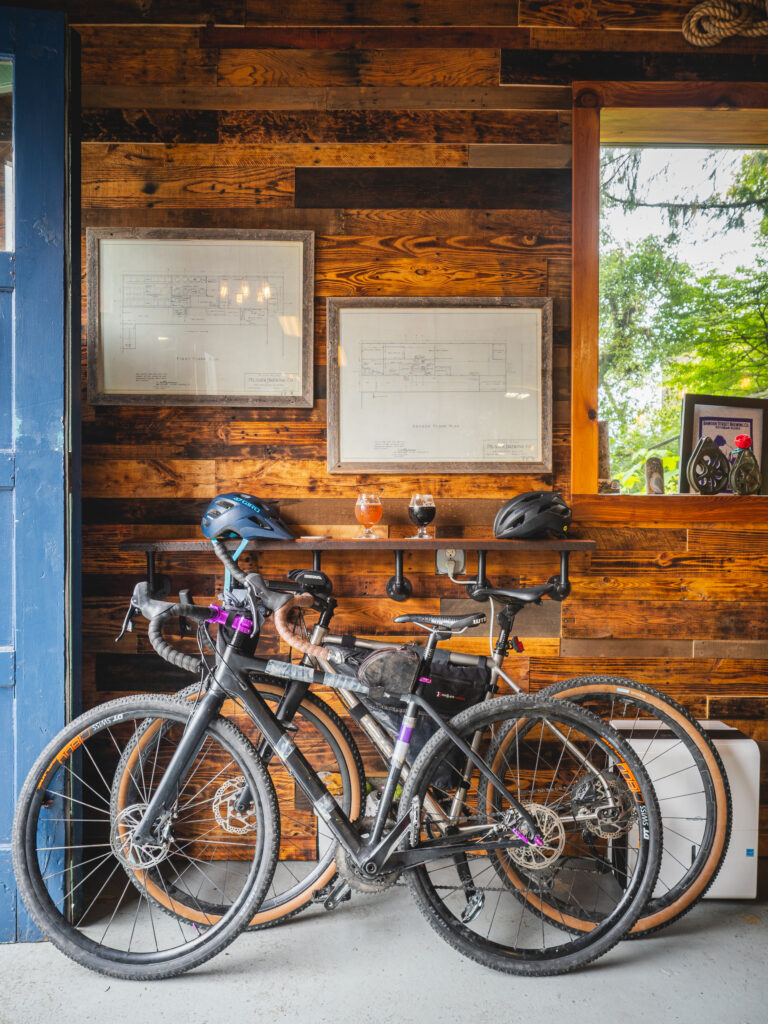
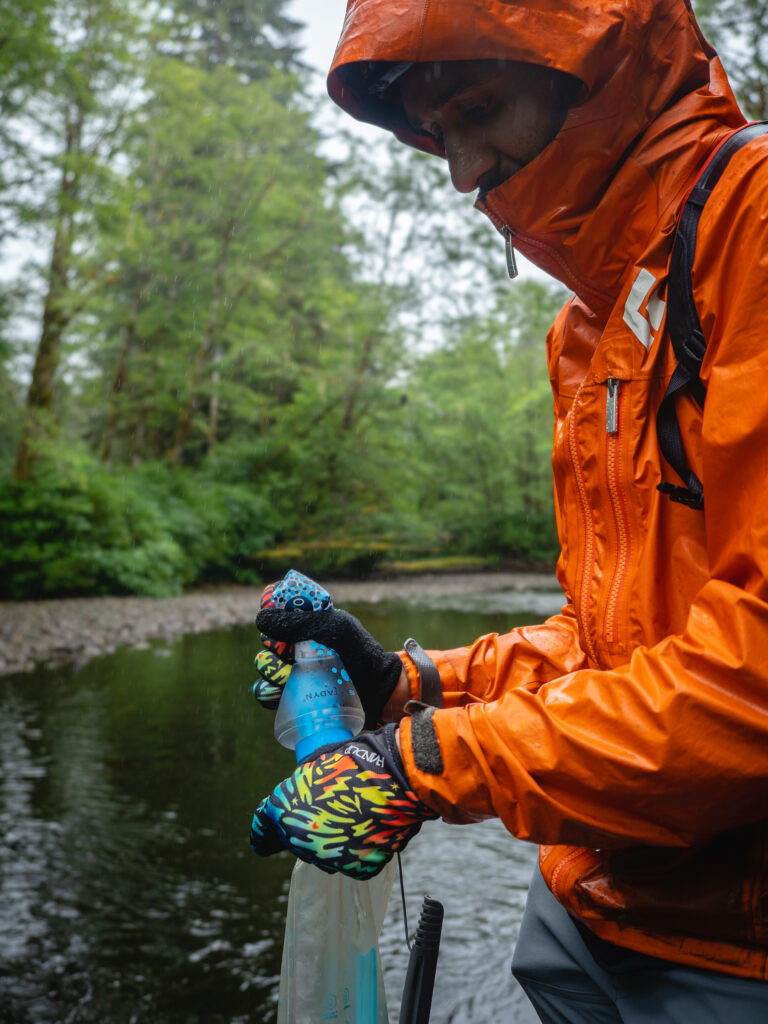
I want to thank my incredible wife Sarah Conlin for all of her support, stoke, camaraderie, and photography during our trip. I would also like to thank Rachel Heath, Lael Wilcox, Rugile Kaladyte, and Christina Grande for their inspiration and help coming up with this trip. It was every bit as magical as I could have hoped for.
For any of you with more questions about our trip please don’t hesitate to reach out to me over social media. I’m on Instagram as @gondalia, and would love to nerd about all things biking/bikepacking!
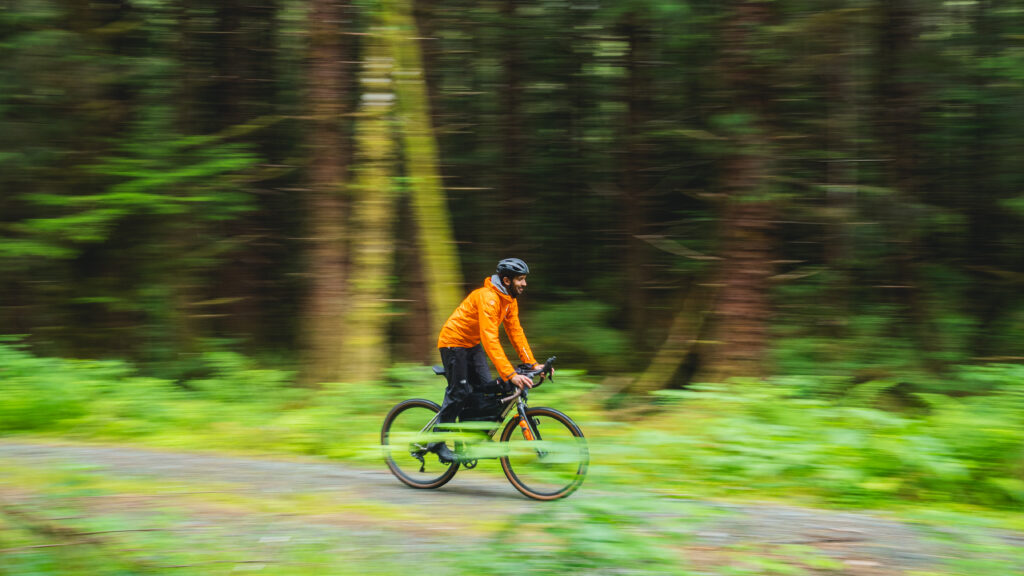
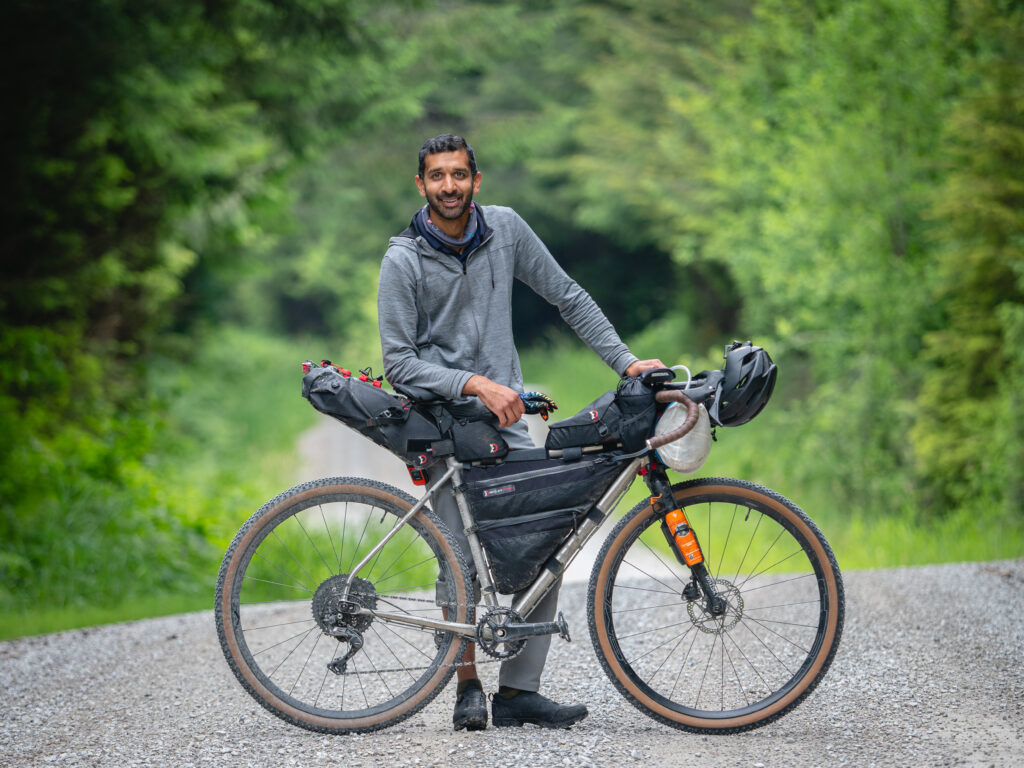
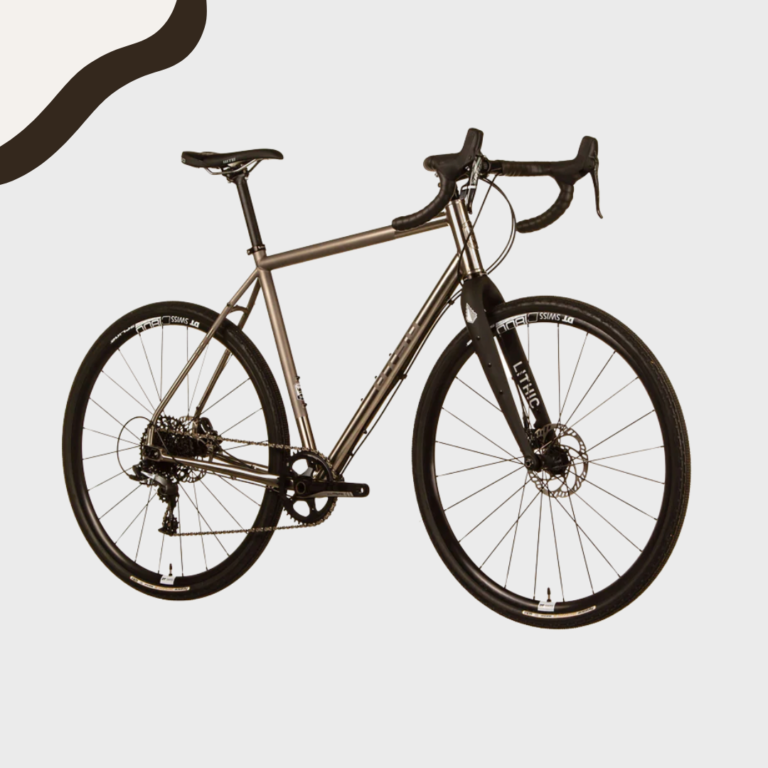
All roads. All weather. The Warakin Ti is ready to take on wet Alaskan bikepacking trips and dry gravel races alike. It’s a lightweight, durable, lively machine that will carry the rider where they choose to go while enjoying every pedal stroke along the way.




